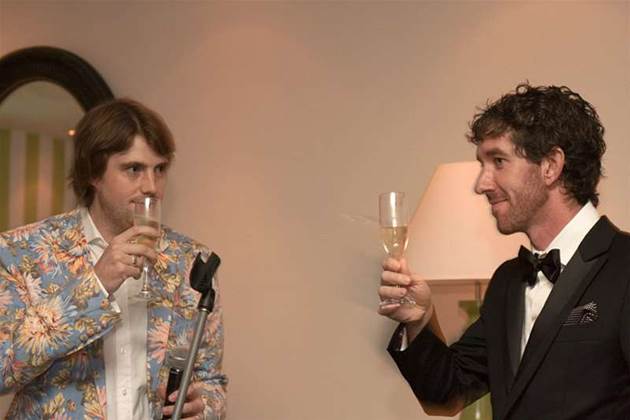A who's who of names in Australia's tech startup community have banded together to give eager entrepreneurs a leg up in the international market.

The product of years of discussion, seed-investor Startmate aimed to crystallise entrepreneurs' great ideas, giving them each a $25,000 kick start on the way to market.
Fund investors will advise start-ups on their strategies and provide them with the benefit of their experience. And they will introduce them to later-stage investors and potential clients. In return, the investors take a minor ownership position in the backed companies.
The initiative was the brain child of web entrepreneur and Homethinking.com founder Niki Scevak and has launched with a roster of tech business identities such as Mike Cannon-Brookes and Scott Farquhar (pictured) from software tools maker Atlassian, that received a $68 million cash injection last month. Also on board is Hitwise web metrics founder Adrian Giles and Adrian Vanzyl, former chief technology officer of two of Australia's first web start-ups Sausage Software and Looksmart. Phil Morle and Mick Liubinskas, founders of web-business incubator Pollenizer are also involved.
Investor Alan Jones said the fund was "primarily mentoring early stage start-ups to help them find a product that people are willing to pay for".
He said the fund wants to attract the "technologist rather than the businessperson, people who are capable of writing their own code [and] who have a technology idea; so we're delivering the other parts of the puzzle for them".
Start-ups accepted into the three-month program receive advice at weekly meetings from successful tech founders and lawyers leading to a two-week trip to Silicon Valley before culminating in a pitch to early-stage investors at "demo days" in Sydney and in the US.
"A big difference between us and other sources of capital in Australia is all investors are also mentors," Jones said. "There's no back room, no hidden money or hidden agenda and decisions about investing in applications are made unanimously by the panel."
The millions of dollars needed by early web start-ups had fallen to the founders' "couple of credit cards" but there was still a gap in the amount of money and knowledge needed to go to the next stage, he said.
Startmate was predicated on "lean start-up principles", Jones said: the ideas to get investment should scale rapidly from a few thousand to millions of transactions, converting users from free or cheap services to paid subscriptions. Examples of this approach were Atlassian and cloud storage provider Dropbox.
The incubator's freshman class of five starts their commercialisation journey next January from applications to be received by October. More than 30 had signed up for the newsletter within a day of the angels announcing their plan.
The idea was similar to Y Combinator, a fund that helped businesses such as Dropbox and news aggregator Reddit to market.
Jones said candidates should put their greatest fear to rest - no one was out to steal their ideas.
"There can be potential conflict in running these organisations if people who are mentoring prey on the start-ups," Jones said.
"A strict rule is this is not an opportunity to invest $25,000 and pull $50,000 in services out.
"The payback is we all feel we've been given a leg up and through luck and happy circumstances we've had a chance to succeed and we want to see more start-ups succeed.
"Our payback is only through commercialisation - and we're putting our skin in the game."
But he warned candidates that they wouldn't be staying in class accommodations on their trip to California; investors and fund recipients will pull down heavily on expatriates in the Valley.
"The Australian start-up mafia in San Francisco will provide the couches that we'll be sleeping on," he said.



.png&h=140&w=231&c=1&s=0)







 iTnews Executive Retreat - Security Leaders Edition
iTnews Executive Retreat - Security Leaders Edition
 iTnews Cloud Covered Breakfast Summit
iTnews Cloud Covered Breakfast Summit
 The 2026 iAwards
The 2026 iAwards












_(1).jpg&h=140&w=231&c=1&s=0)



